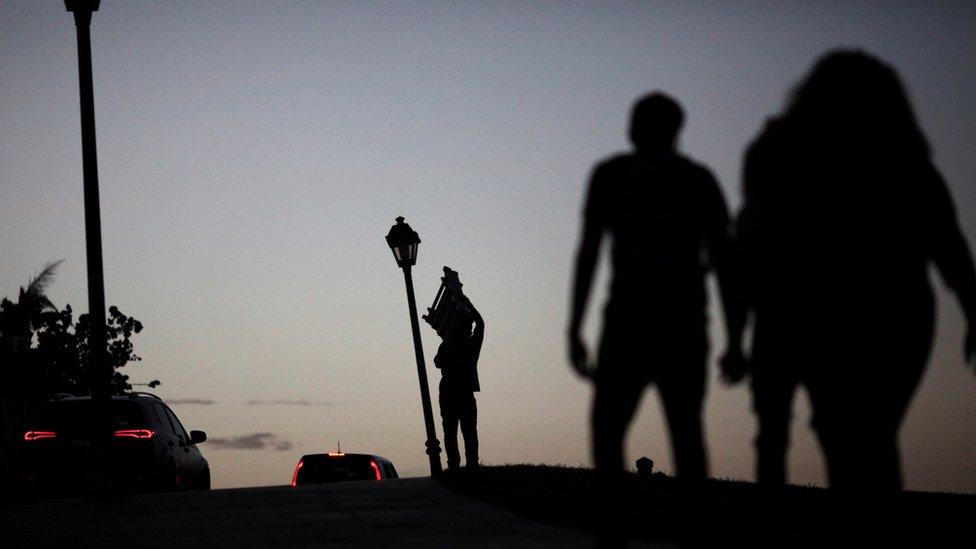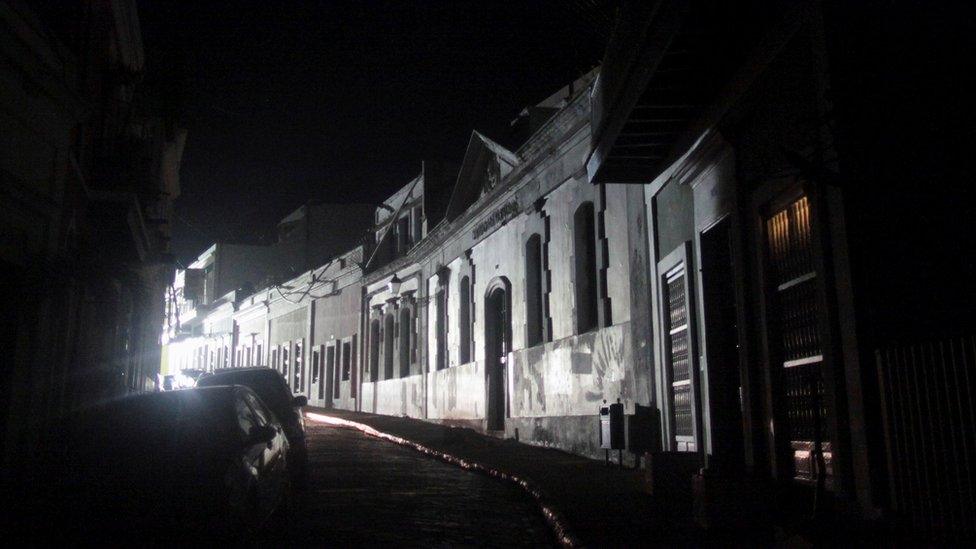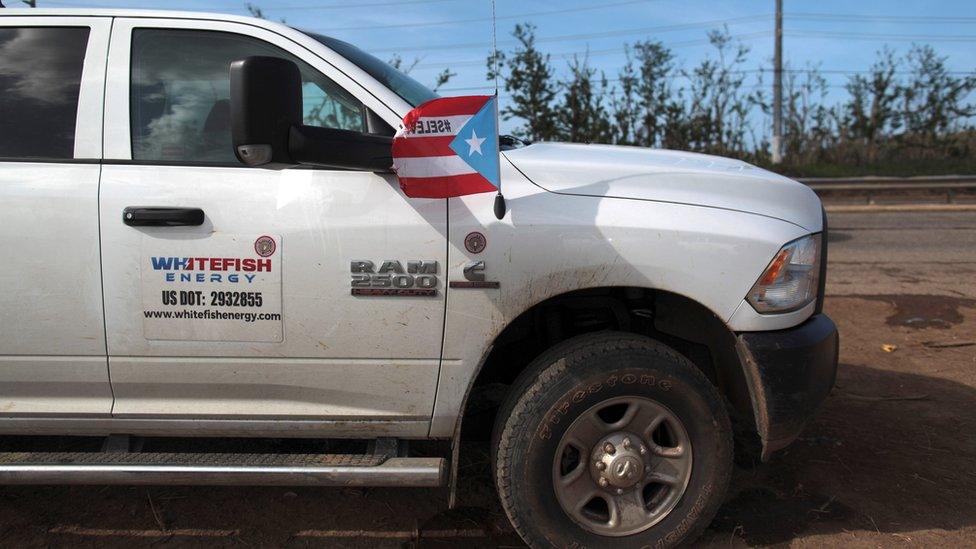White House distances itself from Whitefish power grid deal
- Published

More than five weeks after Storm Maria, most Puerto Ricans are still in the dark
The White House has distanced itself from a $300m (£228m) contract awarded to a tiny Montana firm to help reconstruct Puerto Rico's power grid.
The press secretary spoke out as President Donald Trump asked his Interior Secretary Ryan Zinke if he had any role in the Whitefish Energy deal.
Federal authorities have expressed "significant concerns" about the contract, and are reviewing it.
Some 75% of Puerto Ricans have no power five weeks after Hurricane Maria.
At Friday's daily White House briefing, questions persisted over why a little-known, two-year old firm with no experience of work on this scale was awarded the contract so quickly.
Press Secretary Sarah Huckabee Sanders told reporters the "federal government has nothing to do with this contract".
She said they would look forward to the results of an ongoing audit.
Hurricane Maria: Puerto Rico faces long road to recovery
The press secretary deflected a question about campaign donations made by a major Whitefish investor to the Trump campaign and allied groups during the 2016 election.
Ms Sanders also revealed that Mr Trump asked Mr Zinke at the White House earlier on Friday "just for clarification purposes" if he had any role in the process.
Mr Zinke "reiterated once again that we have no role - the federal government, and specifically he had no role in that contract", according to the press secretary.
Earlier this week, Mr Zinke's office acknowledged that he knows Whitefish Energy's chief executive - they hail from the same small town in Montana.
But he denied any involvement in the Puerto Rico deal, or taking any meetings on behalf of the company.
On Friday, Mr Zinke issued a new statement, external saying that "after the initial contract was awarded, I was contacted by the company, on which I took no action".
He said he welcomed an investigation by his agency's inspector general.
In a statement, Whitefish Energy said it would "cooperate with any and all information requests".

More than five weeks after Storm Maria most light on the island is generator-driven
Claims by Prepa, the US territory's main utility, that the Federal Emergency Management Agency (Fema) reviewed the deal have been contradicted.
The contract states, external that "Prepa hereby represents and warrants that Fema has reviewed and approved of this Contract".
It also says Fema "confirmed this Contract is in an acceptable form to qualify for funding from Fema or other US Governmental agencies".
But in an email to reporters on Thursday night, Fema denied that.
It said "any language in any contract between Prepa and Whitefish that states Fema approved that contract is inaccurate".
Fema also said it "has significant concerns with how Prepa procured this contract and has not confirmed whether the contract prices are reasonable".
Its review is ongoing, but the disaster agency warned that contracts not in compliance with their regulations "risk not being reimbursed by Fema for their disaster costs".
Critics have queried why Puerto Rican authorities did not seek aid from other public utility companies - as is custom during disasters.

Little-known Whitefish Energy has raised eyebrows for possible links to the Trump administration
It is unclear what would happen if Fema refused to pay.
Walt Green, a former director of the US National Center for Disaster Fraud, told BBC News it is "impossible" to say at this stage who is responsible for costs.
"Any dispute may result in appeals, administrative hearings and lawsuits," he added.
Puerto Rican authorities initially said Fema would pay, external for the deal.
They are now seeking to assure the public there is "nothing illegal", external about the contract.
Prepa and the Puerto Rican government are saddled with massive debts. The power authority declared bankruptcy in July.
Neither Prepa nor the Puerto Rican governor's office returned multiple BBC emails requesting comment.
The US House of Representatives Natural Resources Committee, which has jurisdiction over the Caribbean island, is also scrutinising the contract.
On Friday, top Democrats from that panel and the Transportation and Infrastructure Committee sent a letter, external requesting the Department of Homeland Security's inspector general launch an investigation.
The correspondence follows similar requests from other members of Congress to the interior department's inspector general.
Puerto Rico's governor has also ordered an audit.